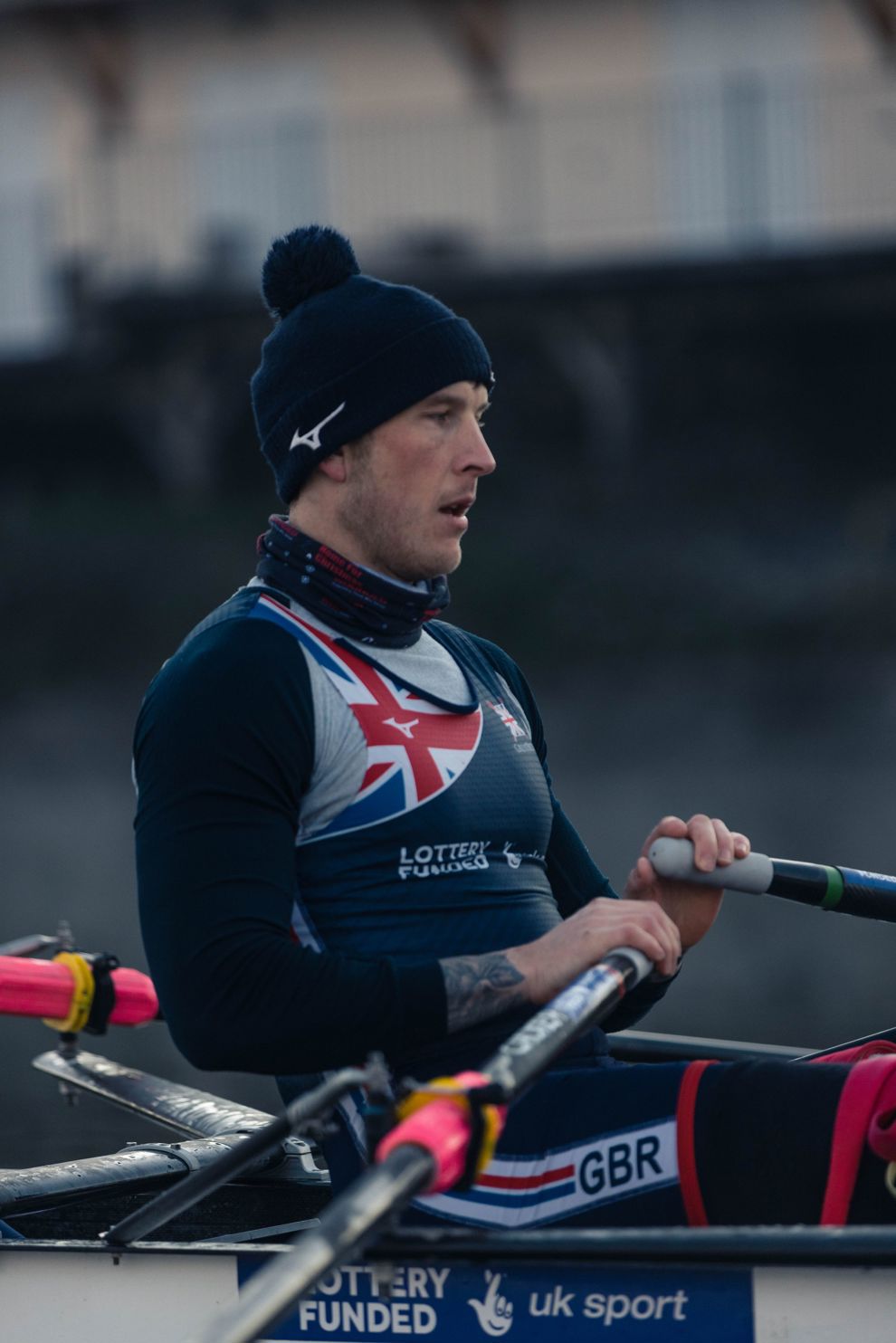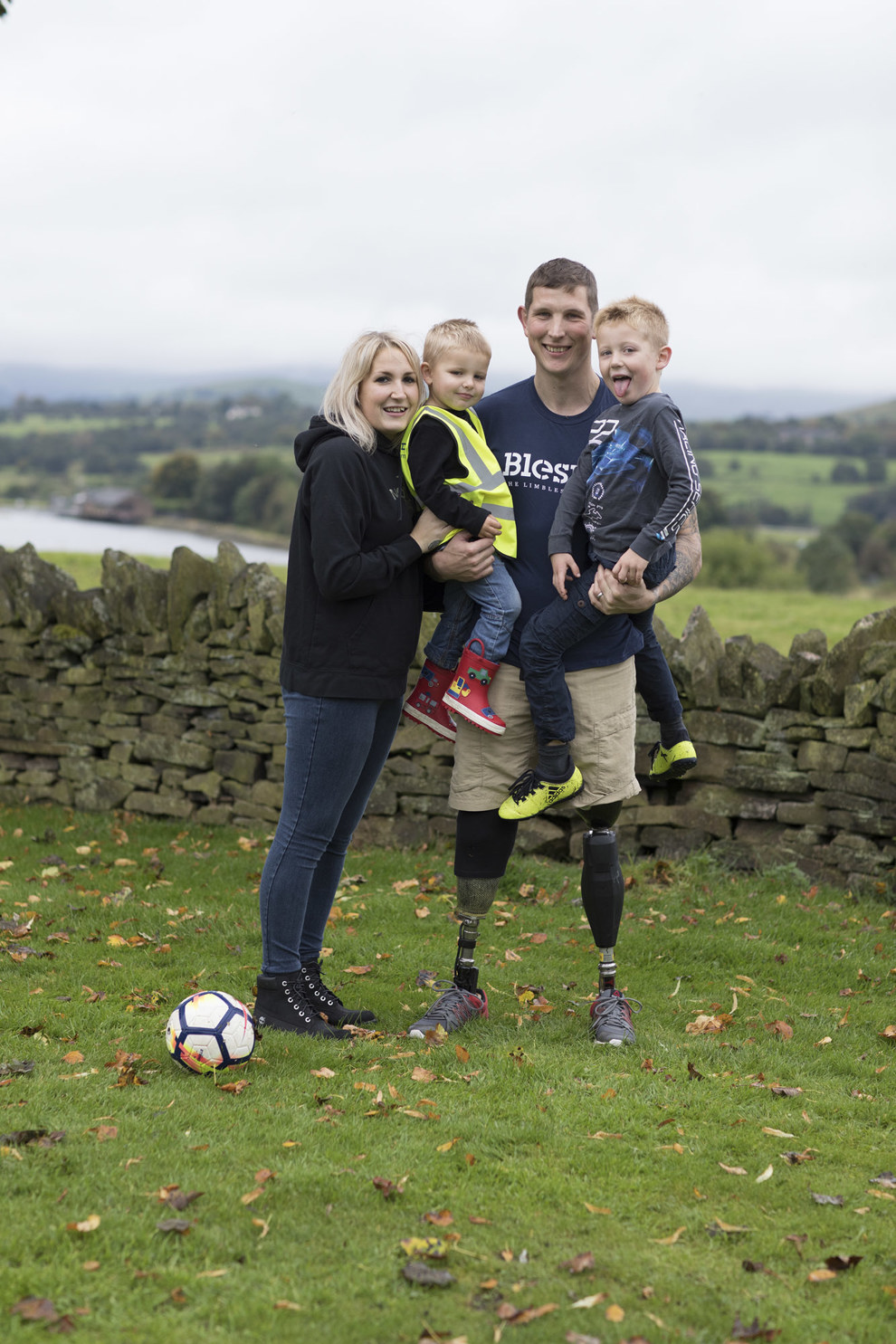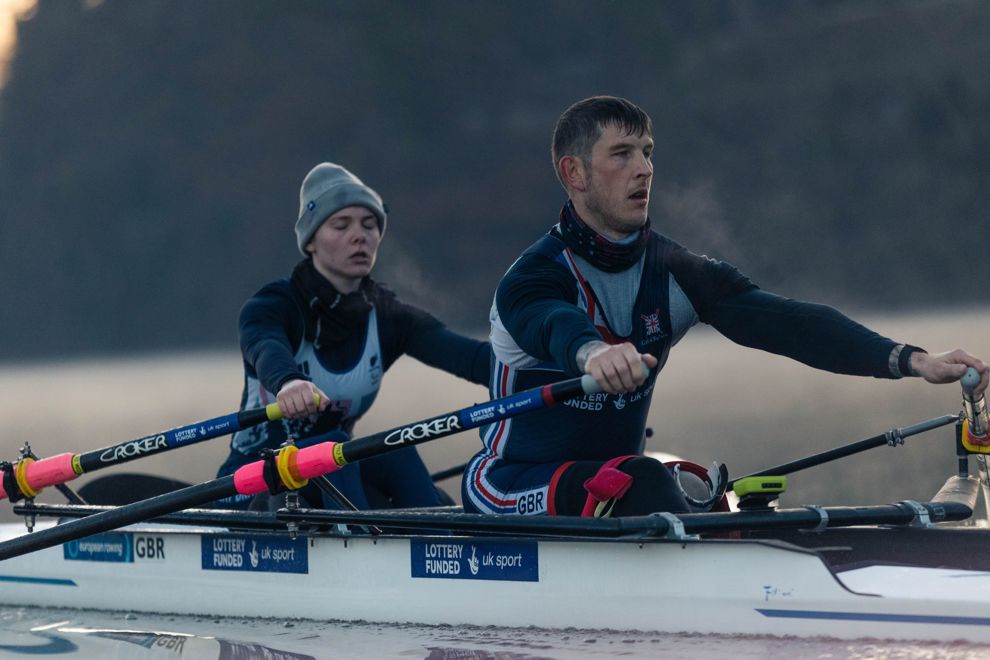On the water with the Blesma Member who is hoping to row into the record books
Take it from a former Commando: elite rowing training is utterly brutal. “I’ve learned the hard way,” says Gregg Stevenson, a former member of 59 Commando Squadron Royal Engineers who lost both his legs in an IED blast in Afghanistan in 2009.
“There is something spiritual about rowing because you have to work extremely hard but be graceful at the same time. It’s that famous swan analogy: giving it everything you’ve got underwater, but on the top you’re serene. Any wobble takes speed off the boat. You may be the fittest person around, but someone else who keeps still and lets the boat do some of the work can go faster than you. I used to hit it too hard. I was the fastest on the indoor rower, but couldn’t translate it to the water. Now, I’m learning that with patience comes speed. It’s something I’ve come to love about it; learning to do it well. It’s very rhythmical, it’s almost like meditation.”
Gregg is training full time in a bid to row for Team GB at the Paris 2024 Paralympic Games alongside rowing partner Lauren Rowles, who is already a legend in para rowing circles for her gold medals at Rio Gregg’s trajectory reflects that of many Blesma Members. He was a six-foot-six, super-fit soldier who loved being outdoors with his Devon-based unit. “When I joined I couldn’t believe my luck, training on Devon’s beaches,” he says. But deployment in March 2009 would change his life.
“Mine is the routine story – I was on a regular foot patrol in Afghanistan, coming under sporadic gunfire. We pushed into a building to try to get some elevation,” says Gregg. “I went into the building first with the metal detector, but the machine was going crazy and we were under immense pressure to get inside. I detonated an IED – it all happened very quickly
FOR ME "THIS IS A SMASH AND GRAB"
“I was thrown through the air; it was like a fairground ride sensation. I felt a pain in my legs like a scolding and had the feeling that I’d been punched in the face. I was disorientated, my ears were ringing, and I had sand in my mouth. When I started hearing voices, I realised that I had significant injuries.
“I was flown back to Bastion and was being operated on within 40 minutes. I was in Selly Oak less than 48 hours later for the more long-term operations; making the stumps the right length. I had a significant infection which really drained me, and they had to take one leg off above the knee, but rehab was fine. I felt grateful that I was still here, and took well to the gym and physio, getting stronger and walking.
“Later on, I struggled. I wanted to stay in the military, but I knew I didn’t want an admin role. I lost motivation to come to terms with my disability. I drank a bit too much and didn’t eat well. I put on weight. It ground down my mental health and I was discharged in 2012.”


ALL OAR NOTHING
Two things turned things around for Gregg: a job at Preston’s Limb Centre and rowing. “I knew I needed to do the right things; get outdoors, exercise, eat better, sleep well,” he says. “The job was my saving grace. I did PT courses and go super-motivated to learn about weight loss and mental health to help myself and others. I had a purpose, I was training again, and started a family too, which was another reason to get healthy.”
Meanwhile, after getting an email, Gregg applied to row at the Invictus Games. “I was into rowing a little bit before my injury, but only on machines,” he says. “In the lead-up to the Commando course, I’d row when I wanted a break from running and load carrying. My technique was probably horrific, but I liked it; it was savage. When I did the Invictus try-out my scores in the 2000m row, which is a standard test, were very good, and I was told I could probably qualify for the GB Paralympics team. So I went down that route instead. It was a great opportunity.”
With patience comes speed. It’s something I’ve come to love about it; learning to do it well. It’s very rhythmical, it’s almost like meditation
But Gregg didn’t quite make the cut. He battled for a seat in the Rio 2016 boat but narrowly lost out. “With that, I thought the curtain had fallen on that ambition, and I stepped away from the sport,” he says.
Gregg started doing some cross-country skiing and entered academia – studying for a scholarship in sports coaching and exercise for disabled veterans through the Open University, as well as continuing to work at the Limb Centre. He is currently studying for a master’s in psychology, and working for the veterans’ mental health service Op Courage (see p17).
“Studying started a fire in me, I wanted to show I could do it,” he says. “At the Limb Centre I was seeing more amputee veterans struggling with weight issues, alcohol, poor sleep, high medication rates, not leaving the house – just like me seven years earlier. I got interested in pushing into that more. I felt like I had something to give and that I could back it up.”
ROWLES ROWS FOR GOLD (AGAIN)
He continues to progress in the field, but decided to pause his career after getting a phone call from Lauren Rowles last year. “She wanted to see if I’d partner with her in what would be her third Paralympics and, potentially, her third gold medal. I knew by the nature of that phone call that she was taking me seriously. She knows I am competitive.”
The pair now row in a male-female competition called the trunk arms mixed double sculls. “I like rowing in a team, and it does feel like unfinished business,” says Gregg. He trains two days a week at home, and travels to the famous Redgrave Pinsent Rowing Lake in Caversham, the home of UK rowing, to row with Lauren for the other three days.
It’s alright saying we’re good, but now we need to prove it. This feels like unfinished business
“Lauren is going or her third Paralympics gold, whereas for me it is more of a smash and grab. Can I pull it off?” he says. “But we train hard. It can be two rows a day plus weights. We are all business, and I enjoy seeing how much my fitness and skill levels are coming on. This will be our regime until Paris, with lots of competitions in between. The key one is the World Championships in September. The top five boats from that get to the Paras. It’s alright saying we’re good, but now we need to prove it.”

Blesma has been invaluable along the way. “I joined while I was at Headley Court, and weeks later I was fishing with the Association in Colorado,” says Gregg. “Blesma is great for family support, and it really helped me when I was having a dip, I needed positive stories from people similar to me. Blesma now helps with my travel and accommodation when I’m training. That support has been incredible and shows how much they believe in me.”
Gregg has come a long way from the streets of Lancashire, where he grew up “with an inkling I’d always join the Army.” Now, his life is all about patience and progress. “Listening to Lauren, who has been here before and won two gold medals, has made a big difference. I’ve really come to love this sport,” he says.
We can help
We are dedicated to assisting serving and ex-Service men and women who have suffered life-changing limb loss or the use of a limb, an eye or sight. We support these men and women in their communities throughout the UK. Click the link below to find out the different kinds of support we offer.
Get Support
Leave a comment
Join fellow Members and supporters to exchange information, advice and tips. Before commenting please read our terms of use for commenting on articles.